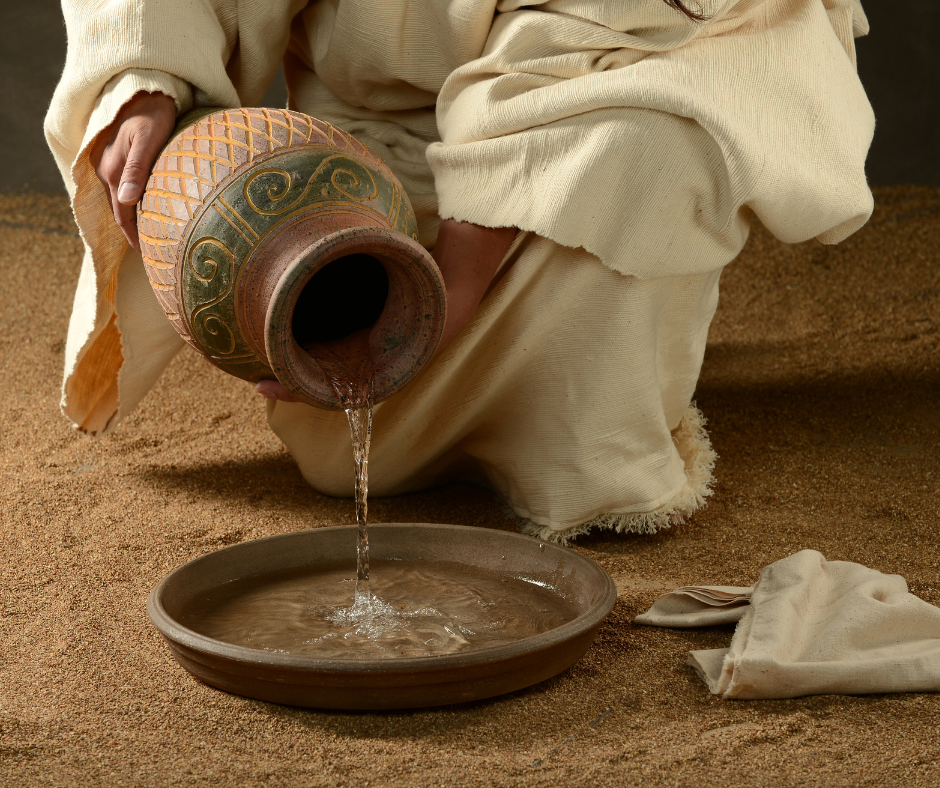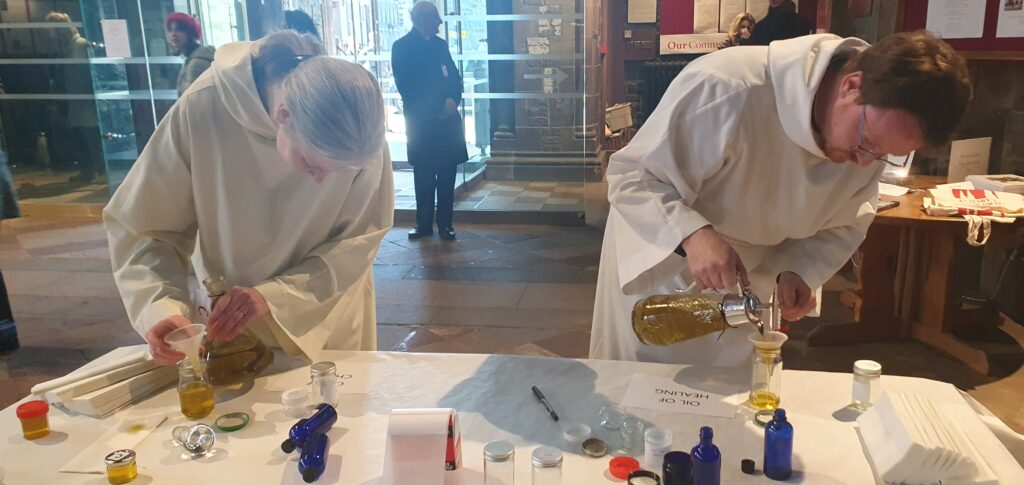1 Samuel 3.1-10; Luke 7.36-50
Be careful what you wish for.
I wonder what Simon the Pharisee had in mind when he invited Jesus for a meal. Did he want to impress him, or indulge in theological debate? Did he simply want to get to know Jesus better? What he didn’t expect was that a disreputable woman would turn up as well – and that Jesus would appear to condone what Simon considers to be her provocative behaviour. She touches Jesus, she loosens her hair to wipe her tears from his feet, she anoints his feet with oil and with kisses. Very bad manners! Yet in clumsily doing everything wrong she famously does everything right. Her act of extravagant love is itself the proof of her salvation.

Simon, on the other hand, is found wanting, and not just in terms of social etiquette. He doesn’t understand that if you invite Jesus to your table he won’t come alone. Nor does Simon grasp that like the woman, he too is the recipient of the immense generosity of God’s love – and that until he does grasp this, his love will remain meagre and mean.
Simon is a faithful person, a moral person. He has good reason to feel secure and to trust his own judgement. But suddenly he’s faced by the outrageous possibility that a woman, and a notorious sinner at that, ranks just as high in Jesus’ estimation as he does.
Perhaps we recognise his dilemma. When we’re young, even into adulthood, the discovery that ‘my parents love my brothers and sisters as much as me’, or ‘my best friend has other friends’, can stir envy and self-pity. The trouble is that God is like our parents and our best friends only more so. Just when we think we’ve established our place in God’s pecking order, God comes along and rewrites it. Look at Jonah’s tantrum when he discovered that God was prepared to forgive the people of Nineveh after all. Look at the bewilderment of the labourers in the vineyard when they learned that even those who had worked for one hour were to earn the same as those who had toiled all day.
Simon needs to learn, you and I need to learn, that God’s love is promiscuous. I remember saying that in a sermon once and someone walked out. Of course, I meant it not in the sense that God is an unfaithful lover, but that God loves indiscriminately – God loves people in ways we may not approve of. And not in measured doses, two teaspoons twice a day and then only to those who can pay for their prescription, but freely and generously – you probably only need a sip but take a whole bottle if you like. We call it grace. God’s grace warms us and wounds us at the same moment. It wrenches tears from a woman, no doubt hardened both by her own lifestyle and by the disapproval of others. It makes Simon uncomfortable, distressed, angry.
At the heart of the Christian gospel is the realisation – the scandalous, frightening, reassuring, transforming realisation, depending on where you stand – that God loves everyone equally, even people we disagree with, even people we don’t like. This is the scandal of God’s grace, encapsulated in our gospel reading. And it makes God to be a deeply unreliable ally. I’m misquoting Rowan Williams here. He said that ‘a bishop is a deeply unreliable ally.’ But whereas a bishop may be unreliable for all sorts of reasons, most of which have to do with his or her human frailty, God, being God, is unpersuadable, unmanipulable. We can’t take God’s agreement for granted, we can’t expect God to share our prejudices. I think of Jeremiah contending with God – ‘I know you’ll win this argument, Lord, but may I just say…’. Or the Psalmist wondering why the wicked seem to flourish.
This Chrism Mass invites us to revisit those intimate, heartfelt moments when, like Samuel, we were confronted by the astonishing possibility that God might have something in mind for us. It may have happened when we were like Samuel, just a child, or much later in life, it may have involved seeking advice or running as fast as possible in the other direction, but at some point it was you and God and you saying something like, ‘Speak, Lord, for your servant is listening.’
Yet a Chrism Mass also invites us to consider that God continues to speak, continues to press, continues to ask of us what we’d prefer not to give or feel unable to give. Remember Jesus sweating blood in the Garden of Gethsemane – ‘take this cup from me, yet not my will but yours be done.’ That, in the end, is the fundamental prayer of Christian ministry which many of us will have prayed, dearly longing for one thing whilst being given another. ‘I should be careful what I pray for,’ we mutter to ourselves, knowing full well that we’ll pray the same prayer next time.
Yet this isn’t something we need to carry alone. We’re here together, recognizing that ours isn’t a solitary calling. And whilst this means that, on the one hand, like Simon the Pharisee, we have things to learn from those unlikely people whom God has, inconveniently and inexplicably chosen to love as much as God loves me, on the other hand, it is these same people we can call upon when, at a low ebb, we need reliable allies.

Thank you for all you give to God and to God’s church through your ministry, whether high profile or hidden from view. Thank you for the sacrifices you make, and for sharing the hope that is in you, and for speaking clearly of what this hope might mean in our troubled, fractious and oh so amazing world. Thank you for the support you give each other, and for your willingness to stand up once again today to renew your vows, even if perhaps ministry feels hard.
And when you take away the holy oils from this service, remember the story of the disreputable woman, how our oil, like her oil speaks of scandal, extravagance and grace. And remember too that when we commit ourselves to walk the way of Jesus, or when we invite Jesus to be our guest, we can reliably expect to be surprised, if not unsettled by those he brings with him.
